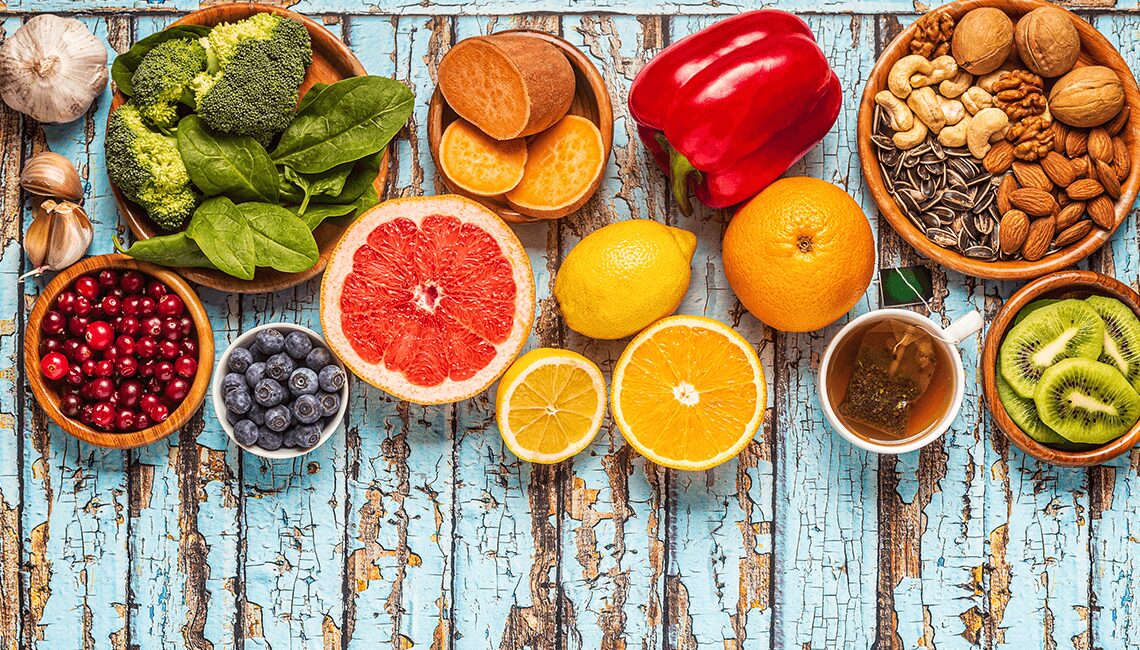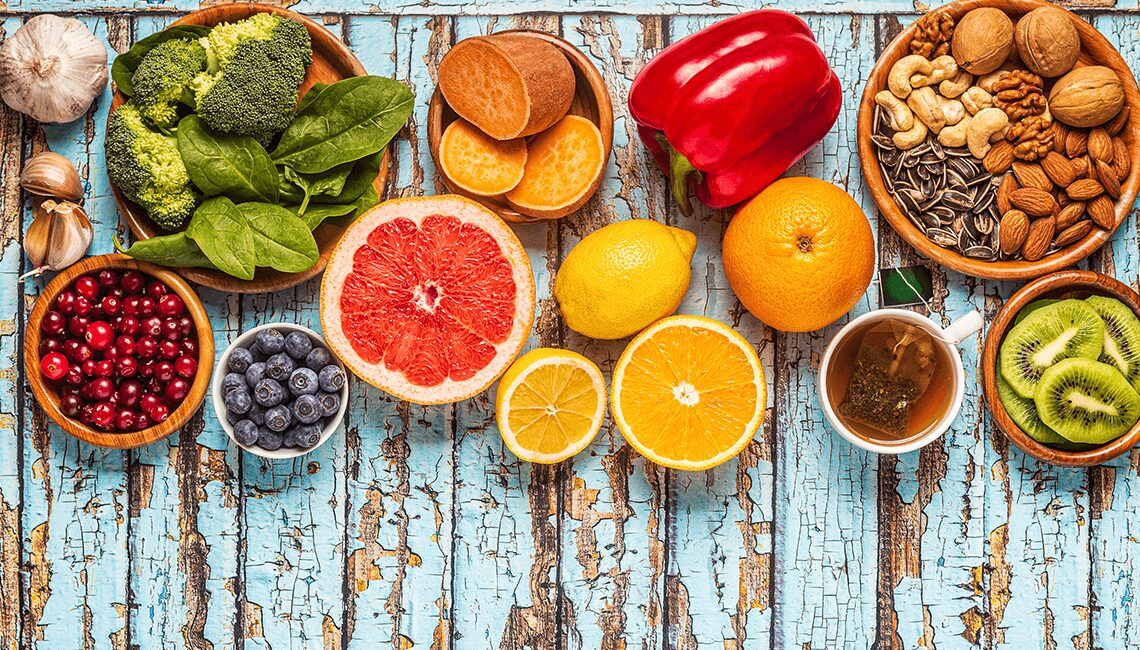During these times, we find ourselves in situations where a strong, healthy immune system is key to keeping us healthy. One of the most amazing parts of the human body, the immune system fights the invasion of germs and pathogens like a large-scale military operation. In order to function at its best, it requires important nutrients to remain healthy. You’ve probably heard the saying “you are what you eat”, and this is especially true when dealing with seasonal immunity.
The following foods may help boost your immunity system.
Citrus fruits
Citrus fruits (oranges, lemons, limes, grapefruit, tangerines, clementines, etc.) are a great source of vitamin C. It is believed that Vitamin C helps build up the immune system by encouraging the production of white blood cells. White blood cells are the infection fighters in our bodies. Citrus fruits are also high in fiber and contain additional B vitamins, potassium, phosphorous, and magnesium that your body needs.
Elderberry
Black elderberry has been used in folk medicine for centuries as a cold and flu remedy. Elderberry is loaded with antioxidants and vitamins including vitamins A and C, potassium, calcium, and folate. It is thought that the juice from the elderberry reduces swelling in the mucous membranes and may reduce illness duration. NOTE: Elderberry is known to interact negatively with certain prescription medications. Check with your medical provider before adding elderberry to your health routine.
Spinach
Spinach is a low-calorie, nutrient-dense leafy green that is full of antioxidants including folate, vitamin A, vitamin C, iron, and magnesium. These nutrients help boost immune function. In order to reap the immunity boosting benefits of spinach, it is recommended that it is eaten raw or light cooking (blanching).
Chicken Soup
Your grandmother probably told you that chicken soup was the best thing for the cold or flu. Turns out that chicken soup is more than a home remedy…. research shows that chicken soup does help you recover from a virus more quickly. Chicken soup seems to stop white blood cells from migrating, lessening the production of mucus, and helps reduce upper respiratory cold symptoms. Chicken soup also improves the way the tiny hair-like projections in our nose (cilia) function, preventing pathogens from entering our body.
Yogurt
Yogurt is rich in Vitamin B12, Vitamin D, and probiotics. Vitamin D is a must for proper immune function. Probiotics, especially the Lactobacillus acidophilus, Lactobacillus casei, and Lactobacillus bifidus strains have been shown to help boost immune function and aid in proper digestion in the gut. Make sure the yogurt you buy is low fat, does not contain a lot of sugar and has “live and active cultures”. Greek yogurt is usually the best option.
Broccoli
Broccoli is chock full of immune boosting nutrients such as vitamin C, beta-carotene, potassium, magnesium, zinc, and iron. Broccoli also contains glutathione, a powerful antioxidant that helps remove toxins from the body. As with spinach, the best way to reap the nutrient benefit is to eat it raw or lightly steamed.
Sweet Potatoes
Sweet potatoes are a guilty pleasure- they are a great source of fiber, vitamin A, and vitamin C. These antioxidant nutrients help boost the immune system. Antioxidants also protect our bodies from free radicals, which cause cellular stress, leading to inflammation.
Almonds
Almonds contain healthy fats, as well as vitamin E, iron, zinc, and protein. Vitamin E is an important immune system modulator, especially in the elderly. Zinc is an important mineral in the prevention of colds.
Garlic
Garlic is another folk remedy that has shown to be effective for its immune boosting ability. Garlic is rich in antioxidants and possesses antibacterial, antifungal, and antiviral properties. Clinical studies have suggested that garlic may help reduce the severity and duration of a cold.
Green Tea
All teas contain polyphenol and flavonoid compounds that are known to improve immunity function. Green tea contains a particular antioxidant, known as epigallocatechin or EGCG, has been shown in studies to encourage immune function. EGCG is also thought to possess antimicrobial properties. Another component found in green tea, l-theanine is an amino acid that is thought to provide anti-inflammatory and immune boosting properties.












